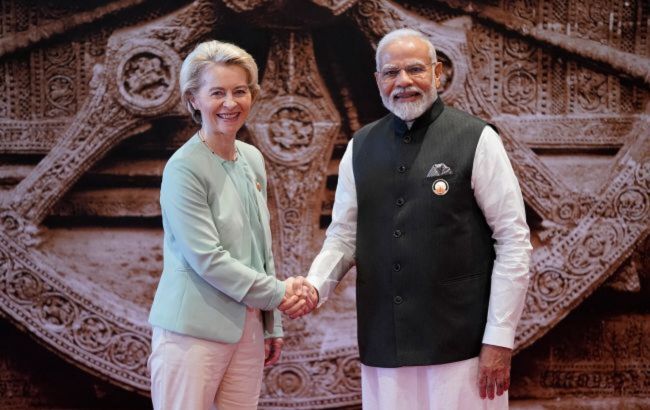Transport revolution in India: new airport and metro ready for launch
 Photo: Indian Prime Minister Narendra Modi during the inauguration of new transport infrastructure projects, including Navi Mumbai International Airport and the Mumbai Metro (Getty Images)
Photo: Indian Prime Minister Narendra Modi during the inauguration of new transport infrastructure projects, including Navi Mumbai International Airport and the Mumbai Metro (Getty Images)
India is launching a transport revolution as Prime Minister Narendra Modi inaugurates a state-of-the-art airport and metro system worth $4 billion, according to The Guardian.
Indian Prime Minister Narendra Modi is set to officially inaugurate two landmark transport projects on Wednesday, with a combined value of around $4 billion, marking another milestone in his sweeping infrastructure modernization program across the world’s most populous nation.
Modi will personally attend the launch of the Navi Mumbai International Airport, developed by the Adani Group under billionaire Gautam Adani. In addition, he will inaugurate the final phase of a new metro line connecting Mumbai’s southern and central districts via the city’s first underground route.
Designed in the shape of India’s national flower, the lotus, the airport covers 1,160 hectares in the satellite city of Navi Mumbai, east of Mumbai. It is expected to handle up to 90 million passengers annually and will be India’s first airport connected to a water taxi network. The new terminal aims to ease pressure on the overcrowded existing airport and stimulate real estate growth in Navi Mumbai.
According to Sheldon Hee, regional vice president of IATA, the new airport "will improve capacity in the Mumbai region and enhance transport connectivity." Commercial flights are expected to begin by December 2025, initially serving 20 million passengers per year. In its second phase, Adani Group plans to invest an additional 300 billion rupees.
At the same time, Modi will inaugurate the final phase of the Metro-3 line, known as the Aqua Line, Mumbai’s first underground metro corridor. It will link the city’s southern peninsula with its northern suburbs and provide access to the existing airport, reducing pressure on the railway and road networks. The line also connects to the Bandra Kurla Complex, Mumbai’s main business district, where construction continues on a terminal for India’s first high-speed rail line, linking Mumbai with Ahmedabad.
Funding for the metro project comes from the Asian Development Bank, Japan International Cooperation Agency (JICA), and the Asian Infrastructure Investment Bank (AIIB).
Together, these projects underscore India’s drive not only to modernize its transport infrastructure but also to attract investment in logistics and improve mobility across the country’s densely populated megacities.

